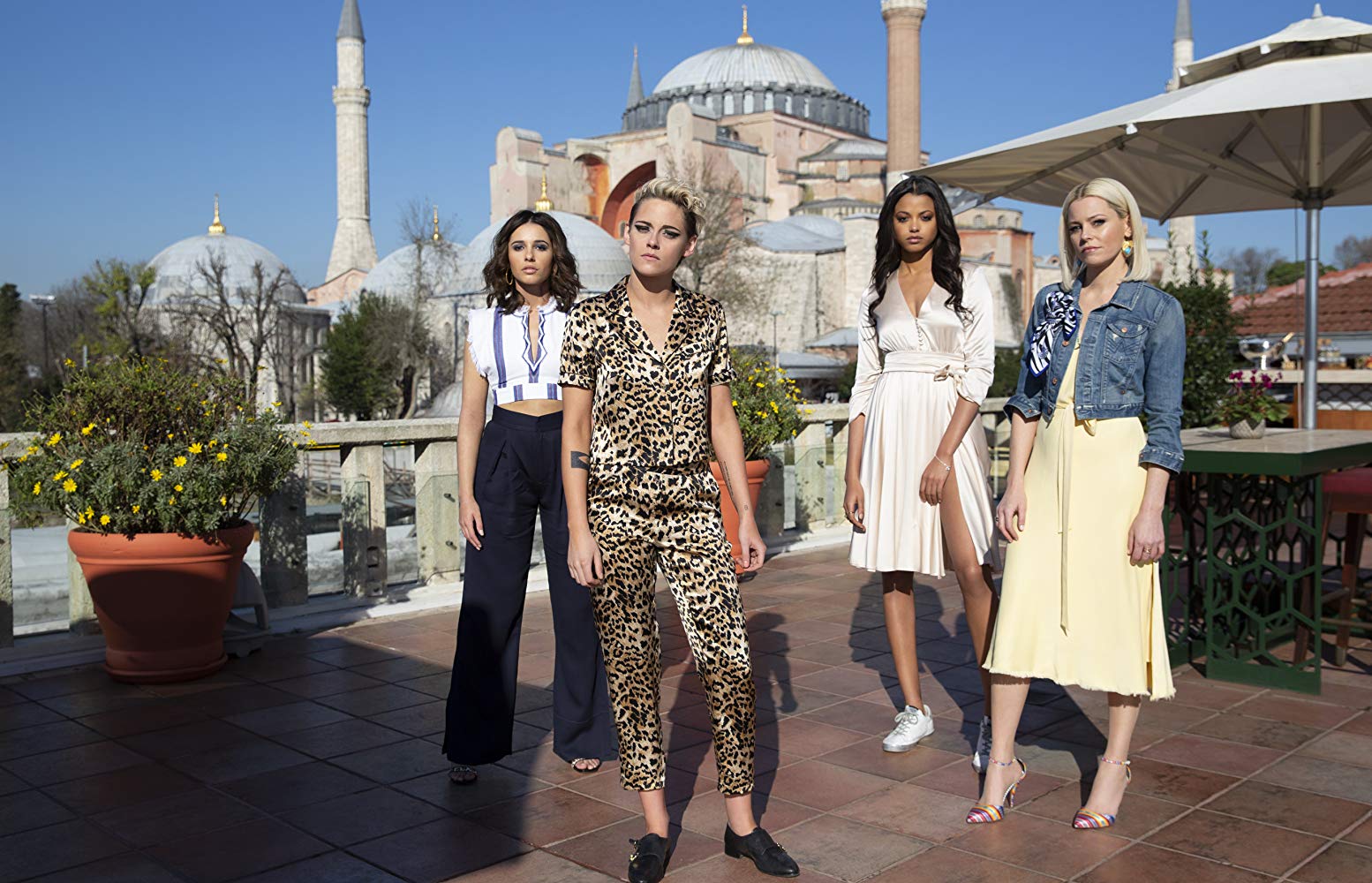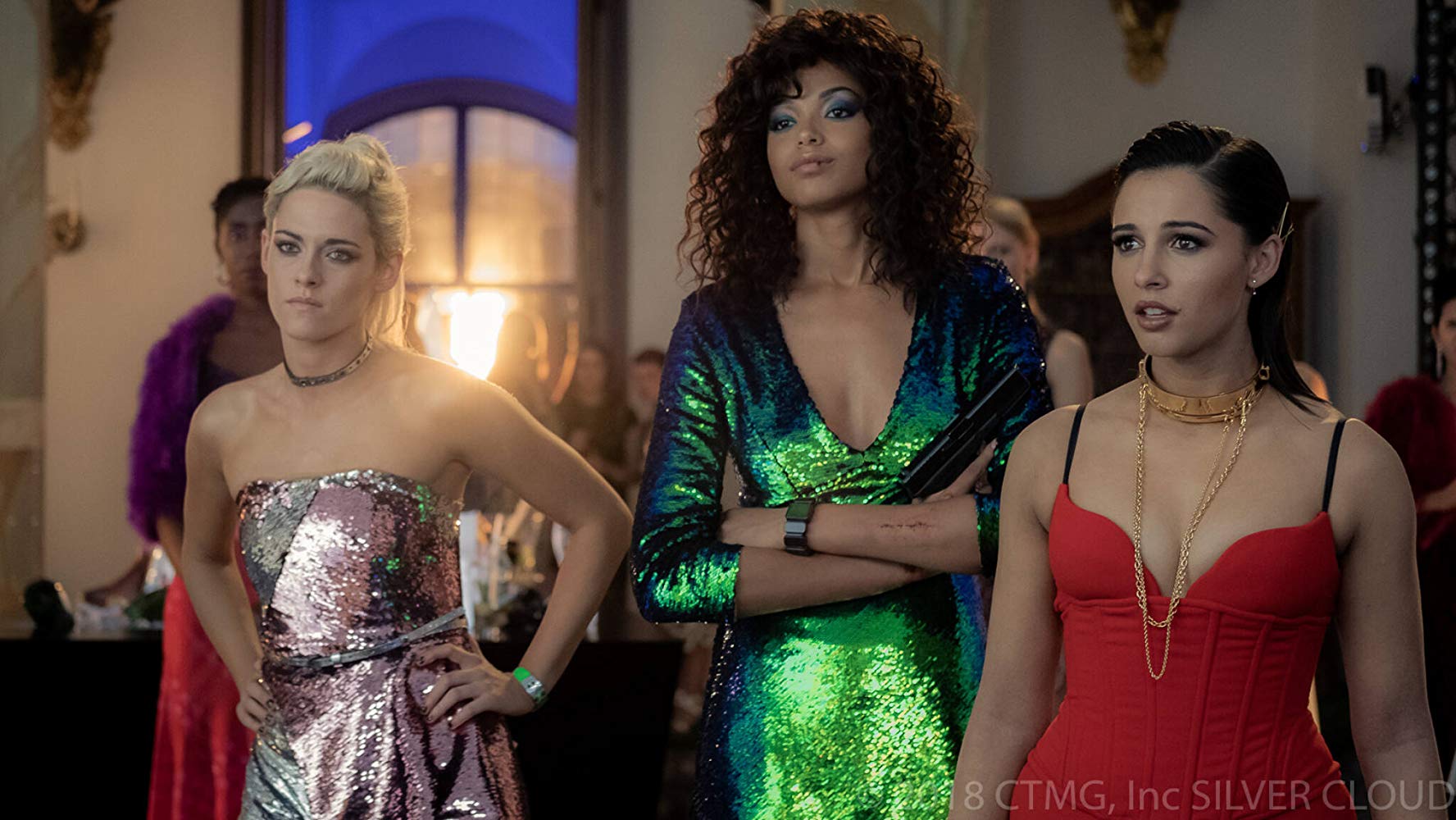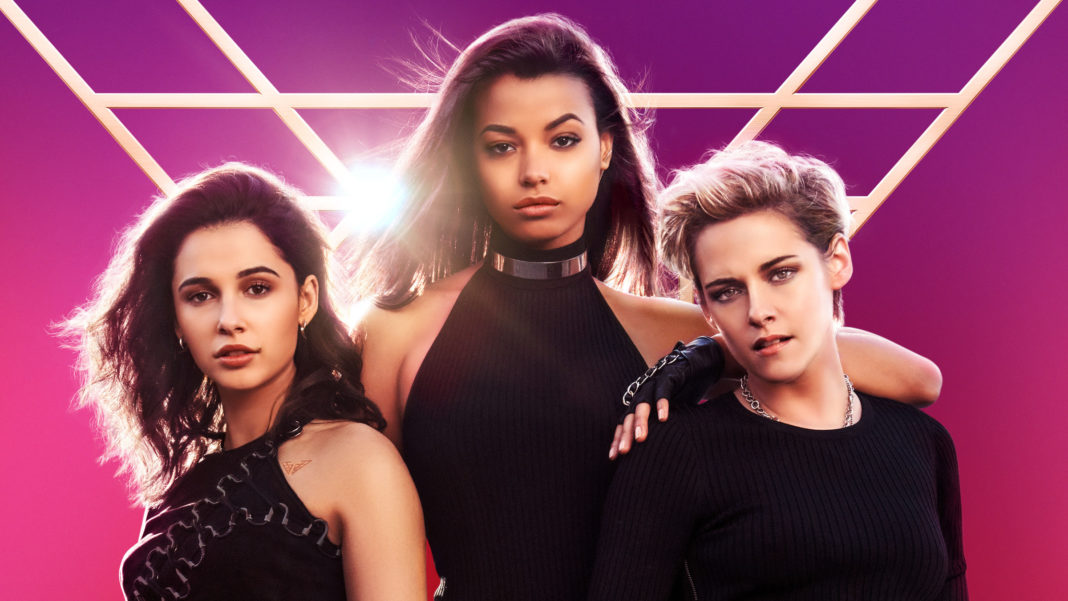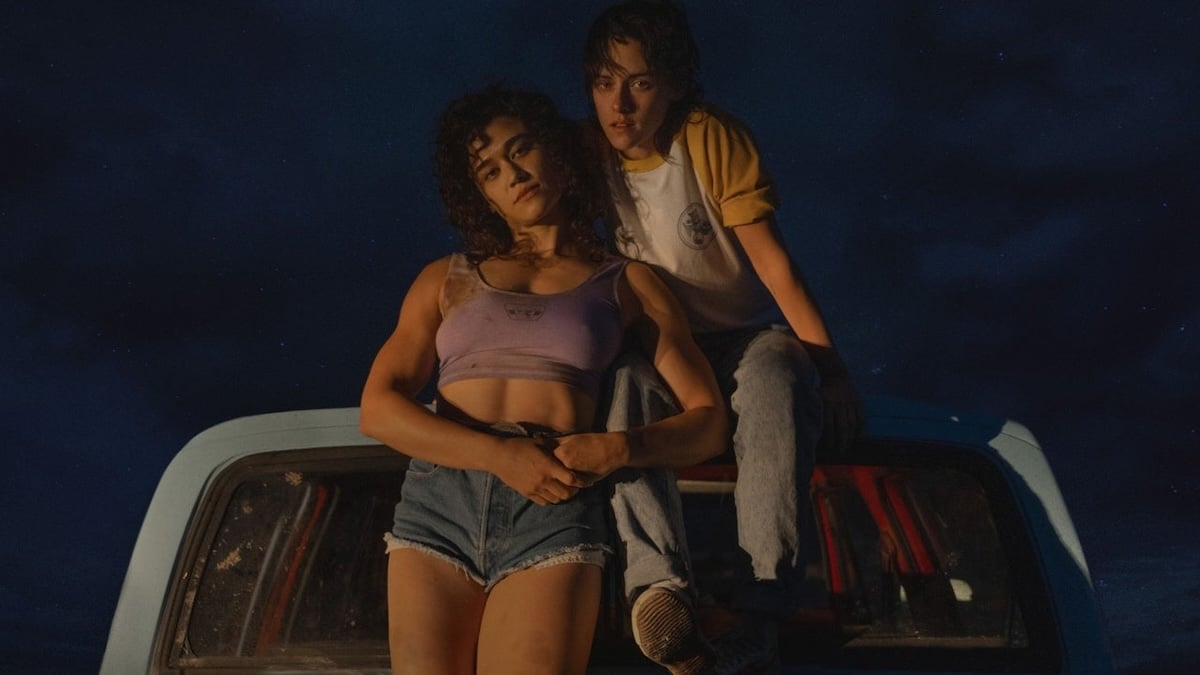How do you build on the legacy of Charlie’s Angels in a way that feels fresh, interesting, and relevant to the current cultural moment? If you’re Elizabeth Banks, you expand the Townsend Agency into an international organization headed by dozens of Bosleys, emphasize the fact that any woman can be an Angel, and create a plot with one simple, but effective, message: trust no man.
Starring Banks, Kristen Stewart, Naomi Scott, and Ella Balinska as Bosley, Sabina, Elena, and Jane, Charlie’s Angels operates on the core tenet that women can — and should — do anything, as long as it’s their choice and no one else’s. Building on the original TV series and the early-aughts films, rather than ignoring or talking over them (although Sir Patrick Stewart is Photoshopped into stills from both as ‘the original Bosley’), this movie seeks to paint the Angels as a progressive organization constantly seeking new talent. Its goal is to take down rich and powerful men whose morals extend as far as their wallets, but no further.

Although it gets a little heavy-handed at times, in many ways, Charlie’s Angels completely succeeds.
The core cast appear to genuinely be having fun with their roles; the dialogue is funny without trying too hard; the drama is resolved satisfactorily; the villains are frightening (particularly Jonathan Tucker, whose character is very similar to Crispin Glover‘s from the last two films); the costumes are spectacularly campy; there are no real love interests (though Scott and Stewart are allowed to flirt, and the latter is definitely queer); the fights are tightly choreographed; the soundtrack is excellent; and even when the film gets a little hokey with its Girls Kicking Ass montages à la the scene where all the slayers rise up in the Buffy finale, its camp makes it work.
Charlie’s Angels picks up right in the middle of the action and tells the audience, “OK, now keep up.” As Sabina and Jane learn how to work together despite vastly different approaches to their work, they meet and basically adopt Elena, a corporate whistleblower who was working as the lead programmer on a completely clean energy solution — until she discovered a flaw that could kill people, and her boss refused to let her fix it. Seeing this unlikely team come together and forge intimate bonds with each other makes the stakes feel much higher. It’s easy to fall in love with and root for all three of them, which can be a tough sell if the actors lack chemistry or nuance.
Luckily, Stewart, Scott, and Basinka bleed chemistry. Their characters’ relationship with Banks-as-Bosley is slightly more strained, but that fits the plot. And although there are plenty of men in this film — including Noah Centineo as a painfully earnest scientist and Sam Claflin as a rich idiot — they are never the focus. Relationships with men are mostly peripheral to the story.
This focus is refreshing and frankly delightful, especially since the movie is presented through a female gaze. There’s plenty of eye candy for everyone, regardless of sexuality, but the Angels aren’t over-sexualized. Even when Scott is put in a too-tight red dress and a collar, the outfit is framed as a commentary on how men want women to look and act, especially when they feel their masculinity has been undermined.

Charlie’s Angels is a genuinely entertaining, nearly flawless movie that draws you in from the jump, takes you on a wild ride, and then sends you off with a smile on your face.
At least, it would, if not for one glaring flaw: as the credits roll, it completely undermines its core tenet by featuring a cameo of Ronda Rousey, a documented transphobe. By itself, Rousey’s cameo is a bad look for a movie that purports itself to be a feminist triumph — but it gets worse. Following Rousey’s cameo, the film takes a hard pivot to a cameo of Laverne Cox. When juxtaposed against a scene with a black trans woman, this transition paints the impression that someone on the production team knew how spotlighting Rousey would look, and wanted to course correct. A better idea would have been to cast someone who isn’t transphobic. Just a thought.
So while it’s easy to sing the praises of this film, which is truly phenomenal no matter which way you slice it, it’s also imperative to point out that Banks and her team made a conscious choice to cast a transphobe. Unfortunately, that brief scene effectively dismantles any progress this movie makes toward establishing Charlie’s Angels as a self-aware, intersectional feminist franchise — and that’s so disappointing.








That’s Naomi Scott in the too-tight red dress and collar described in the review but shown in the accompanying picture, not Ella Balinska. Or is there another scene in the movie in which the latter also wears a too-tight red dress?
You are correct, Rob! Middle of the night writing-induced typo. Corrected – thanks!
Too bad this movie absolutely ranked because no one wants to be forced fed feminist ideology. You’re crazy to think this movie did anything correctly.
Comments are closed.